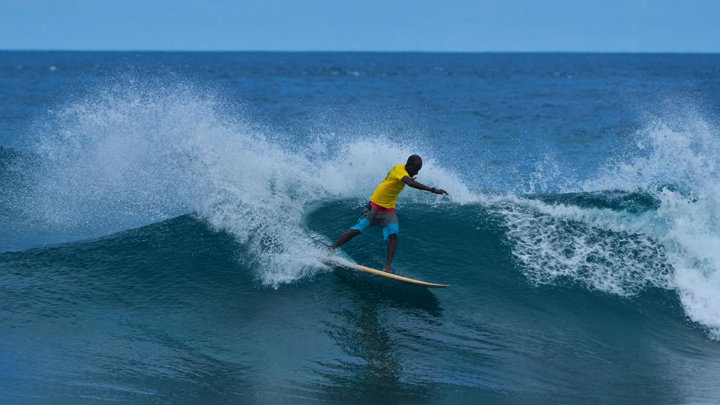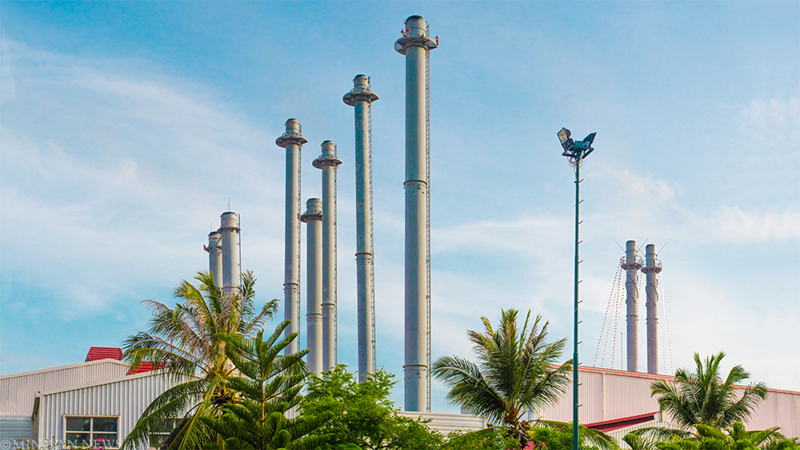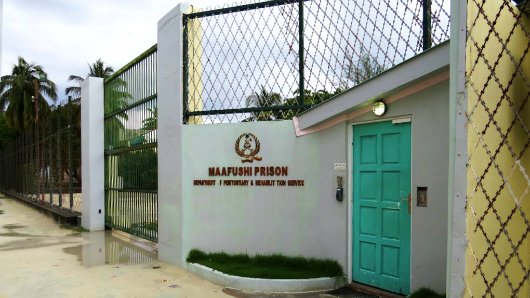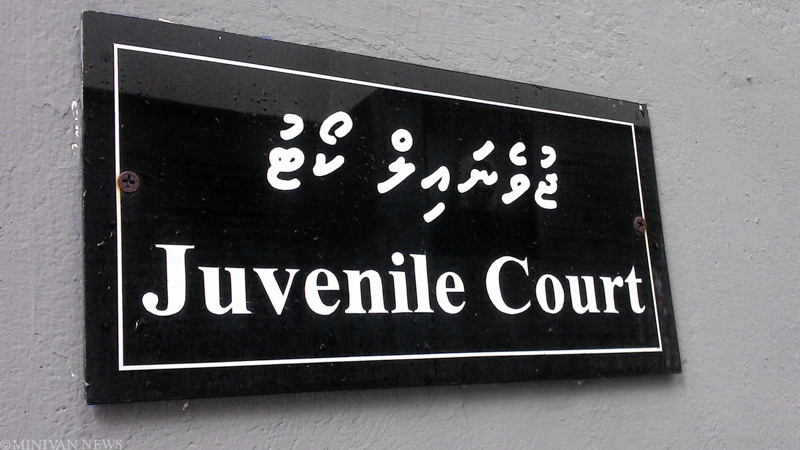This article is by Isha Afeef
The government’s plan to build a bridge connecting the capital and the airport island may destroy the Maldives’ most consistent surf break at Malé’s Raalhugandu, surfers have said.
“These surf breaks cannot be built like football grounds. They are forces of nature, and a bridge in the area will destroy my hometown’s wave. This is disastrous for anyone who surfs,” local surfer Hassan ‘Zakitte’ Irfan said.
Housing minister Dr Mohamed Muizzu told Haveeru last week that the US$100 million Malé – Hulhulé Bridge will run from Malé’s south east corner at Raalhugandu to the end of the airport runway at Hulhulé. A second survey of the ocean basin is ongoing.
The government says the bridge will increase connectivity between Malé and its suburb Hulhumalé, where 20,000 people live. The bridge is to be completed by the end of 2017.
Over 90 percent of Maldives’ surf athletes practice at Raalhugandu, while a majority of local surfing competitions and several international competitions have been held there.
Although Raalhugandu has weathered through severe damage to Malé’s reef from the construction of a sea wall, and the reclamation of land from the ocean, the placement of the bridge’s pillars may affect the ocean currents that form waves suitable for surfing in the area, local surfers have said.
Ahmed ‘Karo’ Fauzan, who has surfed at Raalhugandu for the past 20 years, says the bridge is bad news for all of Malé City’s residents. Nearly one-third of the Maldives’ population lives in Malé, and the Raalhugandu area is one of the few public spaces were Malé city residents can go for a run or a swim. Many people, old and young alike, while away the evenings at the various food carts, sipping on coconuts and nibbling on local delicacies.
“The impact of this bridge is bigger than a wave. It is going to lead to a loss of culture. We’re not living the way Maldivians are supposed to be living. We have no access to the natural resources in this city. Yet we’re living,” he said.
All of the nearby islands and lagoons have now been sold off for tourism, industrial or military purposes, making the loss of the narrow beach at Raalhugandu even more devastating.
For Karo, surf breaks are a natural resource that must be protected, not only because of the foreign revenue surfers bring in, but also because surfing for him is an expression of love for the ocean.
Dhafy Hassan, a female surfer, agrees: “I am in love with my country because of the ocean and the beaches. I think every Maldivian is proud of our natural beauty no matter what. Surfers, divers and fishermen, we have this beautiful excuse to be in the water, this is what makes us who we are. But if the bridge is built, that will be taken away from us. Why destroy what makes us?”
The possible loss of Raalhugandu comes as a big blow for local surfers, especially since the government in 2011 sold off nearby Thamburudhoo island, home to the Maldives’ best waves. Tourism revenue from the island will go to military welfare.
“With no other spots nearby, this bridge will become a huge blow for our community. We treat her as our home. We don’t litter here or make her dirty.” Ahmed Aiham, 16, who has just recently started to surf, said.
Karo, who also worked on the “Save Thamburudhoo” campaign, said Maldivians must fight for the waves. He also said the bridge may also disrupt another wave at Hulhulé island.
He has urged the government to reveal details of the environmental impact assessment of the bridge, and said the government must factor in the loss of Raalhugandu wave before approving development.
Meanwhile, Hussein Fayani, at Malhu surf school, said funds allocated for the bridge should be invested to improve the ferry system between Malé and Hulhumalé. His school teaches 25 children, aged between four and six, how to surf every month.
“Building the bridge is not something that should be done at all,” he said.
Environmentalist Noorain Jaleel described the bridge as a “selfish and inconsiderate step in the name of development.”
“How far will we go till we understand how delicate our environment is? How vital its balance is, even to us mighty humans. The currents, surfs and tides have their roles. Selfish inconsiderate steps in the name of development will one day bring all of us to our knees. Better planning with serious consideration of the environment will take us a long way. For our future generations. You are answerable for them.”
The Maldives Surfing Association and the Maldives Body Boarding Association declined to comment on the issue, saying they are working on a plan for discussions with the government.



